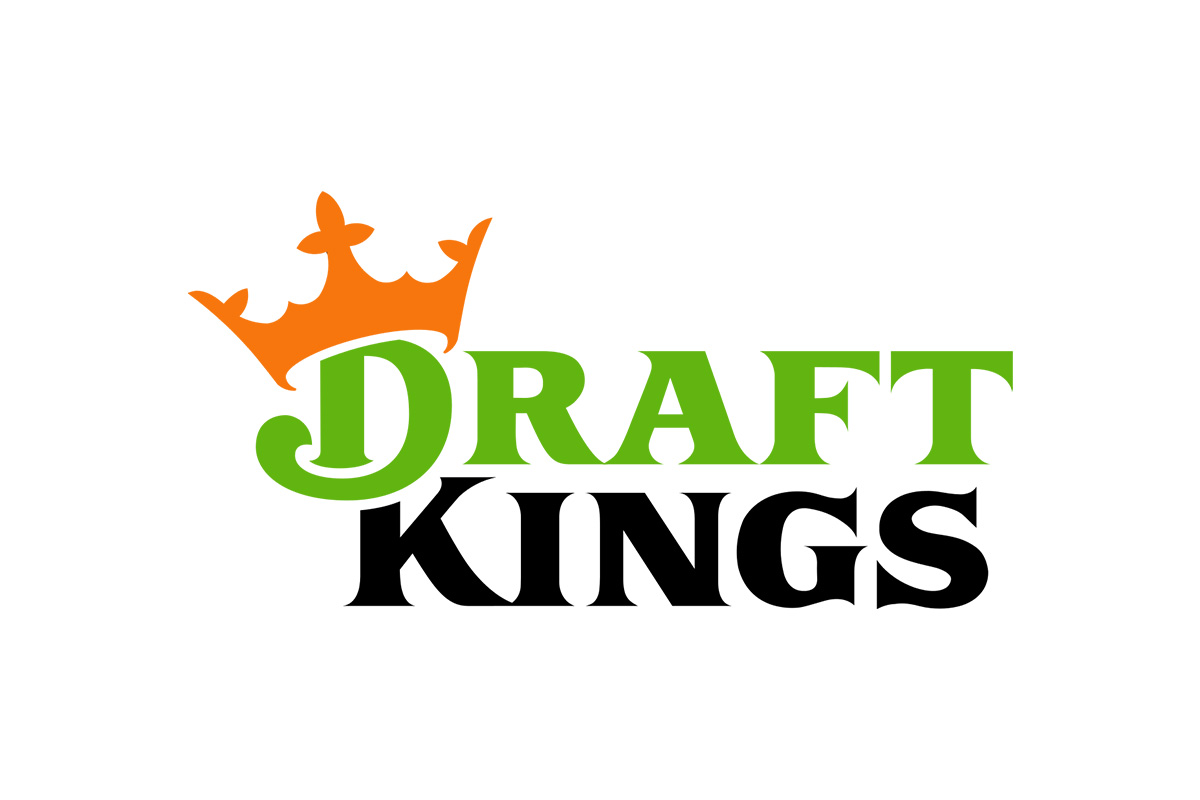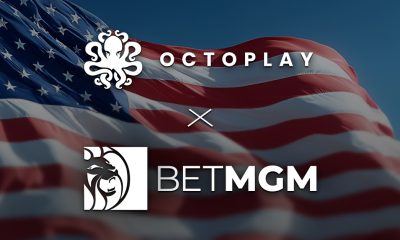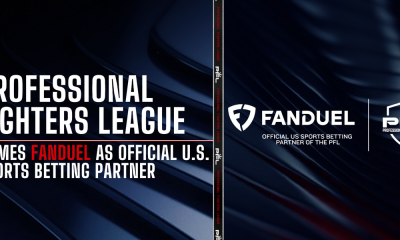Compliance Updates
At $300 Million, This is Expected to be California’s Most Expensive Ballot Fight Ever. And it Just Got More Intense

In a sign of the bruising, expensive fight to come, two Native American tribes are coming out in support of a newly qualified ballot measure to allow online sports gambling — instead of a separate gaming measure backed by dozens of other tribes.
On Wednesday, two tribes — the Middletown Rancheria of Pomo Indians and the Big Valley Rancheria Band of Pomo Indians — will announce their support for the online gaming measure that proponents call the Californians for Solutions to Homelessness and Mental Health Support Act.
Backed by commercial operators including FanDuel, DraftKings, and BetMGM, the measure would legalize online sports betting in California, with 85% of the revenue going toward housing for the homeless and mental health services. The rest would go to the Indian tribes that will be partnering with major gaming operators in running the operation.
On Tuesday, Secretary of State Shirley Weber announced that the measure had gathered enough valid petition signatures to be eligible for the ballot in November. A report from the state’s nonpartisan Legislative Analyst’s Office said new tax revenue from the proposal “could reach the mid-hundreds of millions of dollars annually.”
“We’re supporting the Solutions Act because it gives us an opportunity to protect our sovereignty and also create opportunities for economic wealth for the next seven generations for our tribe,” Jose “Moke” Simon, chair of the Middletown Rancheria of Pomo Indians, said.
“It also helps the state of California deal with some of the biggest problems that it has here, that is affecting every community, which is homelessness and mental health issues,” said Simon, who stars in a new online ad for the proposal.
It is a sign that what’s expected to be California’s most expensive ballot measure battle ever is heating up. Analysts have predicted that more than $300 million could be spent between the warring parties. That’s far more than the $224 million spent by both sides over 2020’s Proposition 22, which asked voters to decide whether app-based transportation and delivery drivers should be classified as independent contractors.
Both sides believe that the jackpot that awaits is worth it: California’s estimated sports gaming market is estimated to be around $3 billion. At least.
A proposal supporters call the Tribal Sports Wagering Act, which is backed by dozens of Native American tribes, already qualified to go before voters in November. It would allow only in-person sports betting to occur only at tribal casinos and qualified horse racetracks. Proponents say they have secured the endorsement of roughly one-third of California’s 109 Native tribes.
Kathy Fairbanks, a spokesperson for the Tribal Act, said that measure represents a more responsible approach.
“It’s allows sports betting to patrons over 21 and older. You have to be there in person, show your ID, people can look you in the eye and make sure that you match the ID in front of you,” Fairbanks said.
The decision for voters, said industry analyst Brandt Iden, is “retail-only sports betting versus mobile.”
“That’s what this is going to come down to do for consumers,” said Iden, a former Republican Michigan state representative who is now head of government affairs at Sportradar, a sports technology company that provides data and content to the betting industry. “Do I need to walk into a sports book to place a wager, or can I do it from a mobile device anywhere in the state?”
Proponents of the online-only measure touted Wednesday’s endorsement from two smaller tribes as a sign that all of California’s Native tribes aren’t fully on board with the in-person-only measure.
Simon, from the Middletown Rancheria of Pomo Indians, which operates the Twin Pine Casino and Hotel in Middletown (Lake County), said the online proposal helps smaller tribes that are far from major population centers. If sports betting were confined to only in-person betting at tribal casinos and racetracks, casinos like the one his tribe operates wouldn’t see much uptick in foot traffic.
“We are looking to obviously move into e-commerce, and this gives us an opportunity to do that,” said Simon, who is also a Lake County supervisor.
But Fairbanks, who represents the in-person proposal, discounted the impact of a few tribes supporting the online proposal, noting that more than 60 tribes oppose it.
“The vast, vast majority are opposed to the (online) measure, and we will make sure that voters are aware of that,” Fairbanks said.
Iden, of Sportradar, said it “isn’t surprising” that some smaller tribes are partnering with the commercial operators. He has seen that happen in other states, including Michigan, where he served. The California online gaming proposal requires a commercial operator to be paired with a Native tribe to be able to enter the market.
Iden said that sort of partnership model has been used in other states “where commercial operators enter the market through a tribal brick-and-mortar operation. Traditionally, smaller tribes really benefit from that because of the money that’s involved.”
The larger question will be whether Californians — particularly the younger generation of digital natives who grew up doing many of life’s activities online — will support a measure that would force them to travel to a casino or racetrack to legally bet on a sporting event.
“That is a huge challenge because everything is really online these days,” said Geoff Zochodne, who covers the gaming industry for Covers, an online site. “That’s where the customer is increasingly located for all businesses.”
Fairbanks didn’t dismiss the tribes pursuing online gaming in the future but said that the current online measure isn’t the way to go “at this point in time.”
“Maybe technology will change. But right now, there’s no 100% foolproof way to ensure that kids under 21 aren’t gambling,” she said.
Iden said the real challenge will be for voters, who will see a blizzard of competing ads. Some ads opposing the online-only proposal have been running for weeks online and on TV — even before the measure officially qualified for the ballot.
“The real question becomes how much confusion is created by these two initiatives,” Iden said. “If you’ve got lengthy ballot proposals that you have to sit there and read, you sort of question whether or not people just get confused and they vote no on both.”
Compliance Updates
HIPTHER Launches Responsible Gambling Assessment Tool Across Its Global Gaming Media Network
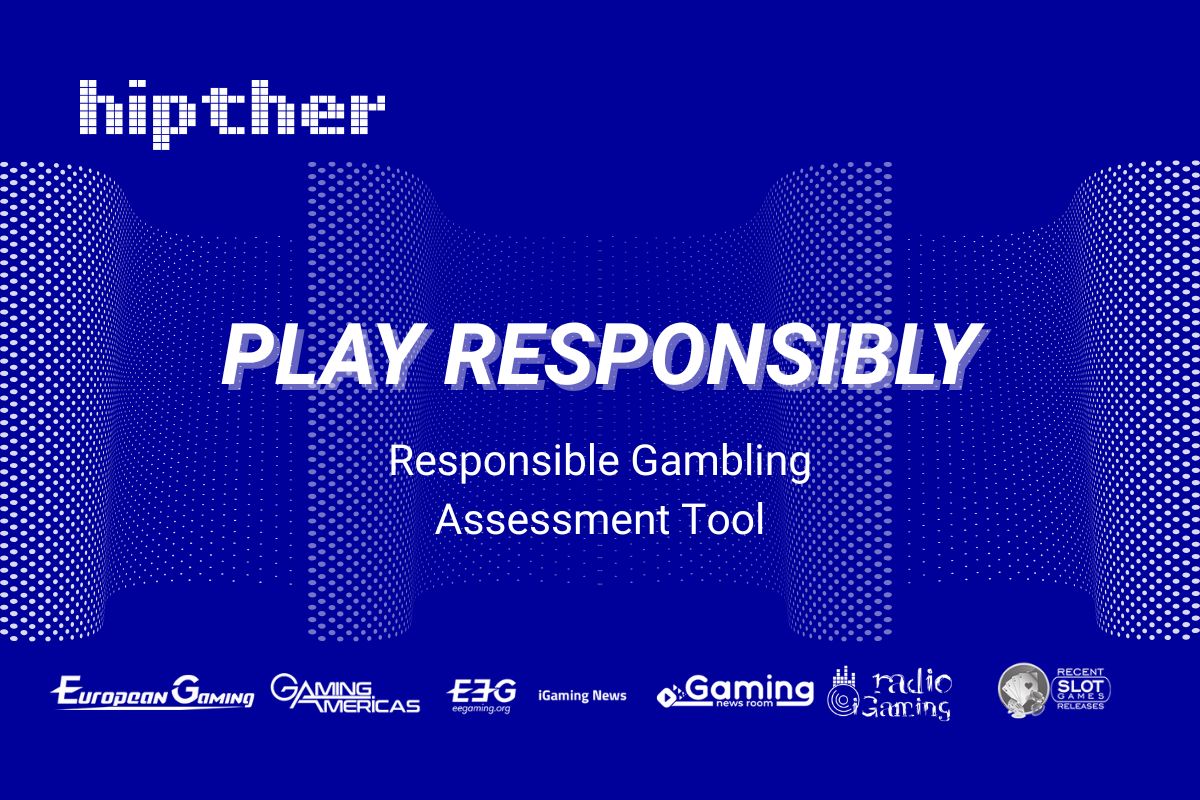
HIPTHER, a leading media and events brand in the Gaming and Tech industries, has launched a new Responsible Gambling Assessment Tool, now live across all of its gaming media platforms. This quick, anonymous self-test is designed to help players better understand their relationship with gambling, encouraging safer play through awareness and early self-checks.
The “Play Responsibly” tool is backed by clinical research and built with user privacy at its core, based on the globally recognized Problem Gambling Severity Index (PGSI) – a 9-question framework used to assess gambling risk levels, from low to moderate or high.
No sign-up needed. No Cost. No data collected. No Judgement. Just honest insight.
Whether you’re simply curious or looking to take a proactive step toward support, this free tool delivers instant results and practical next steps – all in under two minutes.
Key Features:
- Completely anonymous – no registration or personal data required
- Instant results with tailored guidance
- Available in 5 languages
- Mobile-first and accessible across all devices
- Fully GDPR compliant
Designed to meet WCAG 2.1 AA accessibility standards, the tool ensures a smooth and inclusive user experience for everyone. With multilingual support and local resource integration, it helps diverse populations connect with trusted support networks in their region.
“While our media platforms primarily serve the B2B side of the industry, we know they’re also visited by players looking for insights and updates. That’s why it’s important for us to go beyond headlines and contribute real tools that support safer play. This assessment is one small, meaningful step toward that.” – Zoltán Tűndik, Co-Founder and Head of Business at HIPTHER.
Take the assessment today and share it with your community.
Because gambling should always be safe, informed, and fun.
Try it now on any of HIPTHER’s gaming media platforms:
By launching this tool, HIPTHER reaffirms its ongoing commitment to promoting transparency, responsibility, and player well-being in the global gaming industry. Together with our partners and audiences, we continue working toward a safer, more informed future for players everywhere.
Compliance Updates
Aristocrat Gaming Wins Land-based License to Develop MONOPOLY Slot Games

Aristocrat Gaming and Hasbro announced that Aristocrat Gaming is the winner of a competitive RFP to create MONOPOLY slot games for worldwide land-based gaming venues, securing a multi-year agreement. The landmark partnership will see Aristocrat Gaming launch all-new MONOPOLY-themed slot titles, beginning in early 2026. The company is excited to reintroduce one of the world’s most iconic brands to land-based slot games.
“To be selected as Hasbro’s land-based slots partner – after a highly competitive process – is a proud milestone for Aristocrat Gaming. Our commitment to innovation and bold creativity sets us apart, and we’re excited to reimagine MONOPOLY slot games for today’s players around the globe,” said Craig Toner, CEO of Aristocrat Gaming.
“It was evident through our selection process that Aristocrat Gaming was the natural fit for the next evolution of the Monopoly brand in the gaming category. We can’t wait for Monopoly fans to experience all new premium gaming content on casino floors,” said Claire Hunter Gregson – Director, Gaming Relationships of Hasbro.
Compliance Updates
Statement from NYSGC Chair O’Dwyer Regarding Casino Applicants

NYSGC Chair O’Dwyer has released the following statement regarding casino applicants.
“On behalf of my fellow Commissioners and the Gaming Facility Location Board, I welcome the eight applicants to Develop and Operate a Gaming Facility in New York State to the competition. The Commission and Board are committed to ensuring the casino siting process is fair, transparent, competitive, deliberative, and beneficial for the State of New York.
“This is a tabula rasa – there are no frontrunners or favorites. These eight proposed projects represent billions of dollars in private investment, thousands of jobs, and amenities in addition to a world-class casino – all things that can transform a community. That’s why each project must obtain all local entitlements, including zoning approval, and be approved by a specific Community Advisory Committee of appointees of the elected officials representing the proposed facility’s location. Only those projects that meet both statutory requirements – zoning and Community Advisory Committee approval – by September 30, 2025 will be considered by the Gaming Facility Location Board. This ensures that only those projects embraced by the community are placed before the Board for consideration.
“Appointing authorities for all eight projects have been notified of their obligation to make appointments to the Community Advisory Committees as soon as possible, as Committees are expected to be up and running in the coming weeks. Through the summer, Committees will hold public hearings to gauge support and/or opposition to their respective project, and formally vote whether to advance the project for Board evaluation. Those projects that are not approved by their Community Advisory Committee will not advance.
“The Board will evaluate those projects approved by their Community Advisory Committee and select up to three projects by December 1, followed by Commission licensure. This ensures that New York State will collect the already-booked casino license fee(s) ahead of schedule.
“As the Board has stated in the Request for Applications, the revenue from new gaming facilities is expected to benefit New York’s public schools, mass transit, local governments, and problem gambling treatment services. The jobs created by these casinos are expected to deliver livable wages to help families live, stay, and prosper in New York.
“We look forward to a competitive process with active community engagement for all proposals.”
-
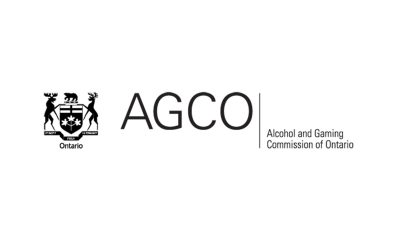
 Canada6 days ago
Canada6 days agoAGCO Fines Great Canadian Casino Resort Toronto $350,000 for Serious Regulatory Violations Linked to Impromptu After-Party on Gaming Floor
-
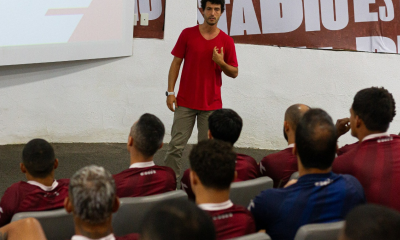
 Compliance Updates6 days ago
Compliance Updates6 days agoEsportes da Sorte holds forum on “Integrity in Sports” with Ceará and Náutico
-

 Latest News6 days ago
Latest News6 days agoBlokotech unveils Cristian Tonanti as new Casino Partnership Manager
-

 Latest News6 days ago
Latest News6 days agoEDGE Boost Named Preferred Payment Method for World Series of Poker Event Series
-

 Latest News6 days ago
Latest News6 days agoFIRST and Genius Sports Extend Landmark Data Partnership, Powering Continued Growth
-

 Canada6 days ago
Canada6 days agoIGT and Atlantic Lottery Sign Eight-Year Video Lottery Central System Technology Agreement
-

 Latest News5 days ago
Latest News5 days agoNASCAR & iRacing Renew Partnership with PlayVS
-

 Latest News3 days ago
Latest News3 days agoRivalry Reports Full-Year 2024 Results as Strategic Turnaround Takes Hold, Operating Loss Narrows, and Efficiency Improves






